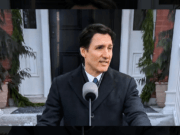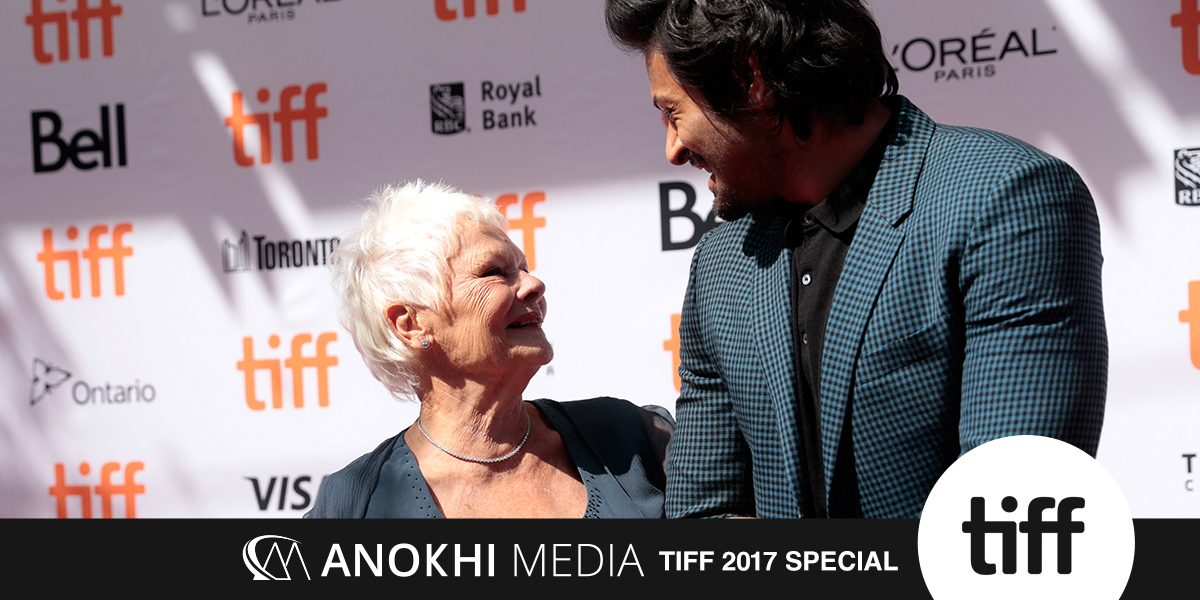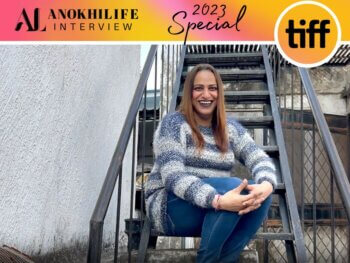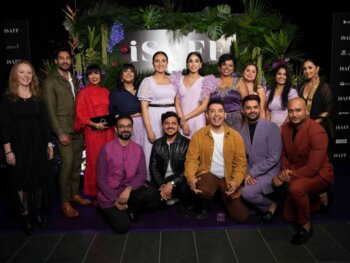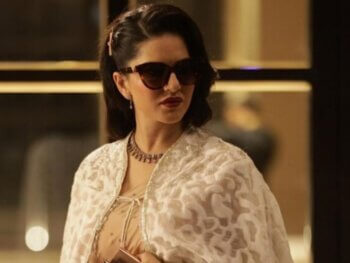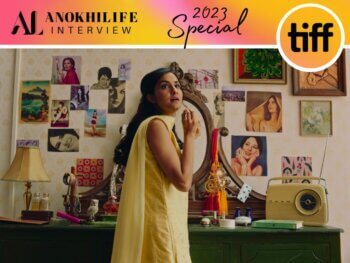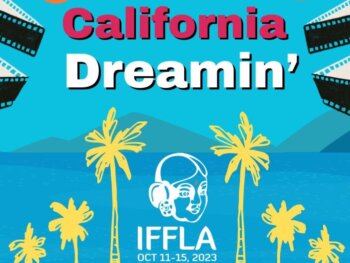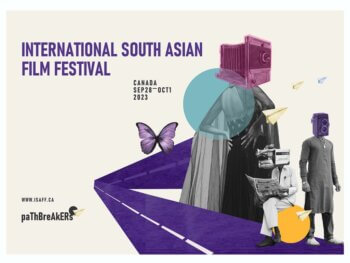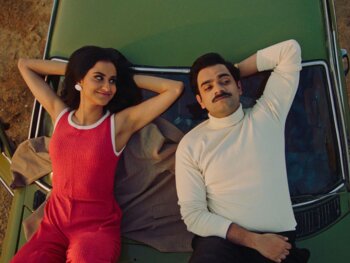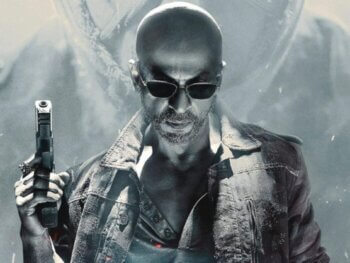The Bollywood star shares the screen with Judi Dench in historical drama Victoria & Abdul. Check out our one-on-one with Ali Fazal.
One of the higher-profile entries at this year’s Toronto International Film Festival was a star-studded drama that shines a light on a little-known chapter in the life of one of history’s most iconic monarchs. Directed by Stephen Frears (High Fidelity, Philomena) and based on the book by journalist Shrabani Basu, the film centres on the unlikely friendship between Queen Victoria (Dame Judi Dench) and an Indian clerk named Abdul Karim (Ali Fazal), who in the late-1800s was chosen to travel to Britain to play a small ceremonial role in the queen’s jubilee celebration.
He would remain for over a decade, becoming one of her closest friends, as well as her “munshi” (spiritual adviser), much to the dismay of the Royal Family and household staff (including Eddie Izzard, Olivia Williams and Tim Pigott-Smith), who did everything in their power to sabotage Victoria and Abdul’s unique bond.
While covering the festival, I got the chance to sit down with Bollywood star Fazal and discuss what it was like acting alongside a legend like Judi Dench (while also teaching her Urdu), taking centre stage in his first Hollywood production, and whether there might be more Hollywood in his future.

Matthew Currie: When you first read the script, what aspect of Abdul Karim really stuck out to you?
Ali Fazal: You think, because of the position that they were in, he was someone who had all the chances to take advantage of Queen Victoria, but what I loved was there was something very soulful about him. He knew that India was not going through a very nice period and it was all because of the British. But he also knew that, or rather figured, that this woman should have been the happiest woman on the planet — she was running almost the whole world at the time — but she wasn’t. She was lonely, she was bored. And he called it.
MC: That’s actually one of the most fascinating things about the film, is that she is such a powerful figure, but she’s also trapped within her own household, with these people who are trying to control her.
AF: They’re born into it; it’s sad. She couldn’t help it. She actually was very ahead of her times, just from the journals and the diaries she used to keep. So [this relationship] makes sense; they intellectually stimulated each other. That’s what was missing. No one would do that in the Royal household.

MC: What exactly did Abdul see in her, do you think? What did he get out of the relationship?
AF: The first time they lock eyes is when he probably sees this girl inside her, just mounted by all this madness, and he just wants to cheer her up. That’s it. You know, of course it’s the Queen and I’m guessing he would’ve been in awe. But yeah, it just grew, and it grew in very weird ways over the next 15 years. He became a munshi, he started teaching her Urdu and then they started talking about so many things that it turned into something very spiritual. And I think that’s what probably made it unique and human.
MC: Well, like you said, they’re growing and changing in unexpected, sometimes tough-to-read ways. There’s a moment where, after spending so much time together in Britain, Victoria finds out that Abdul has a wife back in India. And you’re not quite sure in what way it affects her.
AF: It’s confusing, because I remember seeing letters [between Victoria and Abdul] and she’d sign off in different ways. [One would] be from a loving mother to a son and another one said “The Queen misses her munshi,” and the third one says, “Come back soon, hold me tight.” And those are very intimate words for a queen to say. Of course, it wasn’t like one of those relationships where she’s picking up some young guy. It was just respect, I guess.

Matthew Currie: When you sign on for a project like this and you find out you’re going to be working with Judi Dench — and not just share a scene or two — you’re going to form the core relationship of this film, is there an intimidation factor there?
Ali Fazal: Obviously, it was nice and it was daunting. But when I got there, it was a fun ride, because she broke the ice. We were on from the word “Go.” And my job became easier, because she’s so good. She makes you look good.
Matthew Currie: Is it a different sort of acting experience when you’re portraying a real-life figure?
Ali Fazal: There’s a responsibility. Because this is probably the first time people are going to see this story and Abdul Karim through my face and my voice; it’s a little scary. Lee Hall has written a very fantastical script; he sort of doesn’t give you timelines. The costumes actually tell the real time, if you notice it. And it’s 15 years, so it’s hard to club all that in one [film] . . . you can go terribly wrong. I don’t know if I did it justice, but we tried.

MC: Would you say this film pushed you to a new place as an actor?
AF: Oh yeah, I think so. Because I’ve never been part of a process like this, to begin with. Being part of a Hollywood film like this, with big studios and then there’s Stephen Frears. I mean, he was a whole new level. He doesn’t tell you what to do. I remember my first four days, he didn’t say anything. I went to Judi and I said “Does he not like me?” [Laughs] And she said, “No, you’re good when he doesn’t say anything.” But he sort of nudges you into doing what he wants. He very beautifully manipulates you. And he wants you to think, he wants you to bring your choices. So you’ve gotta have your game up . . . [But] Judi would be always up for rehearsals; that was nectar to me. That was like, Wow, I can just walk into a van, we’d sit and do our lines. I’d teach her Urdu, brush up my own Urdu.
MC: Did you ever ask Judi for any career advice during those rehearsal sessions?
AF: Oh God, I did once. She said, “Learn your lines and don’t bump into furniture.” And “Brush up on your Shakespeare. You should always know your Shakespeare.” So that was sweet. But we were spending so much time together that, and she said this before in an interview, it was like a theatre group. We were at the Isle of White, and I remember we were all in this lovely boutique hotel, and we’d be sitting by the bonfires, having our meals together. Everybody was together, and that was really nice. That helped us sort of bond and get things in. Whenever I wanted to read the script, I’d spot her sitting in the lobby somewhere or in the garden and pop over.

MC: I assume it was the exact same vibe on Furious 7 [in which Fazal had a cameo]?
AF: Oh God! That movie’s at the other end of the spectrum. But again, a lovely experience with Vin Diesel and Paul Walker, Tyrese, just a lovely bunch. So that was different. Very different.
MC: From a career standpoint, would you like to be jumping back and forth between Bollywood and Hollywood going forward?
AF: I think there’s a great market [in Bollywood]; everybody knows me there, so it’s easy for me to always go back and shoot. So I think the big question is, if I move, where do I move and find some exciting work on this side? Because I love that, I love when a director can really push me out of my comfort zone and get something out. I can only hope there’s more.

MC: It seems like we’re inching closer to a reality where it’s a little easier for actors to move from one film scene to another.
AF: I think it’s getting a little easier because the global stage has so opened up. With Netflix and Amazon coming into India, we’re already dealing in a global level. But we’ve gotta come a long way. But’s it’s OK. We started way later than Hollywood, and that’s why we look up to international cinema. But I like to think of it as one world and I really hope we start sharing notes, bridging those gaps.
Victoria & Abdul opens in select cities Friday, September 22, before expanding across North America in the coming weeks.
Main Image Photo Credit: Brian de Rivera Simon/Getty
Matthew Currie
Author
A long-standing entertainment journalist, Currie is a graduate of the Professional Writing program at Toronto’s York University. He has spent the past number of years working as a freelancer for ANOKHI and for diverse publications such as Sharp, TV Week, CAA’s Westworld and BC Business. Currie ...





























